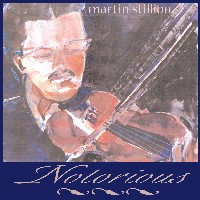Two strikes for Columbia
From that visit, the two things I remember most distinctly are the taxi driver and the pizza. We gave the taxi driver the name of CIU and our best idea of its general location, but somehow all she heard was the name of the highway. She took us about 10 miles out of our way before I talked her into turning around and actually delivering us to our destination. Speaking of delivery, we ordered bell peppers on the pizza that was brought to our hotel room later that night, and it was the first pizza I've ever seen bearing vinegary, mushy bell peppers that came from a jar. Strike one for Columbia.
On Halloween we passed through Columbia for the second time, on our way from Asheville (which, my wife decided, was the proper place to hold the 20-year reunion, even though the school is no longer there) to Statesboro, Ga. Just ahead of the freeway junction where we were supposed to switch to a different interstate, I pulled off the highway in search of food. As soon as we entered the surface street we encountered a sign showing the way to the current location of my wife's alma mater, but, lacking raw eggs and toilet paper, we declined to drive down and see it. Besides, we were hungry. Motivated by the desire to experience Southern-style barbecue, I pulled in at a place called Maurice's. There are, I later discovered, eight Maurice's restaurants in Columbia, and the cuisine has been written up in People magazine. It's something of an institution.
For all that, we were the only customers. Our road-weary eyes stared at the menu for what must have seemed like an uncomfortably long time for the woman behind the counter, because she actually suggested that we go down the road to the lunch buffet if we wanted a wider selection. I told her we didn't need a wider selection as long as we had an alternative to Maurice's flagship pork sandwich — pork being the main focus of Southern barbecue. We just don't eat a lot of pork.
So we ordered chicken sandwiches, hush puppies, fries, and water, and while we waited for the food, we started looking around the place. The first surprise was the bottled barbecue sauce on every table — it was a yellow mustard-based concoction, rather than the red tomato-ey stuff we're used to out West. The second shock was a little more eye-opening. In a corner of the restaurant were some non-food items for sale: a biography of the restaurant's founder, Maurice Bessinger; Bibles; and miniature Confederate battle flags.
Uh-oh. I read one of the photocopied political columns lying on the countertop: a defense of William Bennett's recent remark about reducing the crime rate by aborting black babies. The columnist dismissed all Bennett's critics, but didn't stop there. He also suggested that blacks who are born into economic disadvantage should just pull themselves up by their bootstraps — a method shown to work only for people who can already afford boots.
The food came, and we went to an outside table to eat it because the weather was nice, and it was a little chilly inside the restaurant. But maybe not all of the chills came from the air conditioner. The hush puppies were slightly crunchy, oniony, and thoroughly delicious. In marked contrast to his politics, Maurice's sauce turned out to be sweet, bland, and inoffensive, but it did have a pleasing flavor.
The rebel flag no longer flies over the South Carolina State House, but it does fly over Maurice's Barbeque. Both entities have suffered economically for the flag: the NAACP led a boycott of the state's convention-and-tourism industry, and Wal-Mart has pulled Maurice's sauce from its shelves. You can read all about it at Maurice's Web site if you think I'm making any of this up. There Maurice makes declarations like this: "Our Sacred Constitution was given to us by God and He expects us to have the courage to keep it." I'm not making that up either. If Bush really wants a strict constructionist for the Supreme Court, he should talk to Maurice — but they might have some differences over federalism.
In his own defense, Maurice alleges that Wal-Mart has made no ideological demands on, and never used any such economic leverage against, its suppliers in Communist China. If this allegation is correct, then Maurice has a point, but unfortunately Wal-Mart's hypocrisy doesn't make Maurice's views any more palatable. A Chinese sweatshop magnate might say, "There is nothing wrong with the way I treat my workers. If there were, then this American company would not buy my products." He would then be making the same logical assumption as Maurice — to wit, that integrity is as important to Wal-Mart as the profit motive — but I daresay Maurice would not agree with his conclusion. And anyway, if I buy a toaster made in China, the instruction manual doesn't contain quotations from Chairman Mao or bear the image of the flag of the People's Republic. Unlike Maurice, the Chinese don't mix their politics with their products.
By the end of my meal I was both satisfied and disgusted: satisfied because the food was good, and disgusted because I'd just given thirteen dollars to a secessionist theocratic redneck in the person of a low-rent Colonel Sanders. I revere the Bible as the testimony of the living God, and up until my visit to Maurice's I believed the notion that the battle flag was just a symbol of regional pride and history — but I was shocked at what happens when you put the two of them together. Neither the Southern Cross nor the Stars and Stripes makes an appropriate wrapper for the Good Book. Strike two for Columbia.


0 Comments:
Post a Comment
<< Home